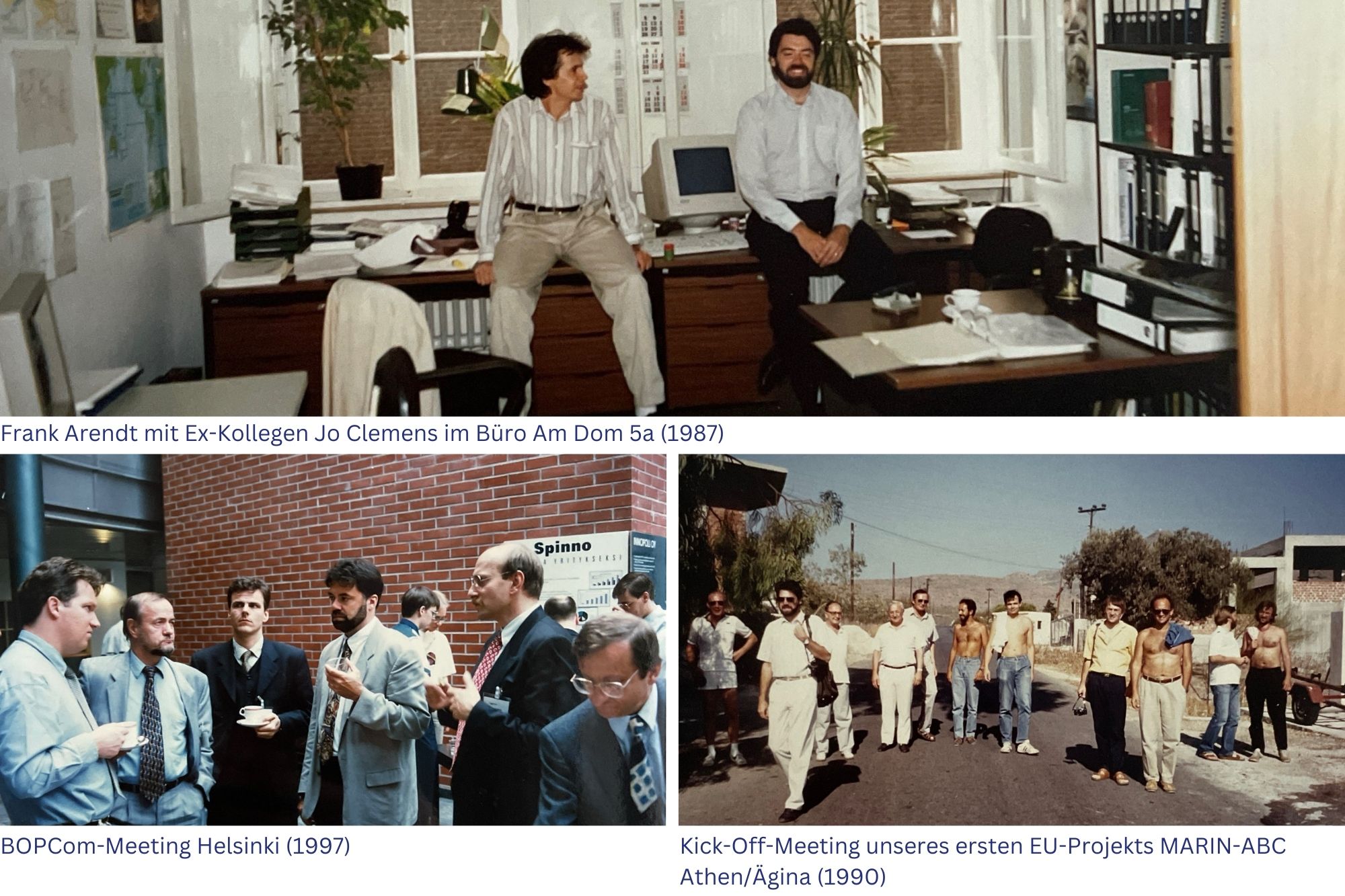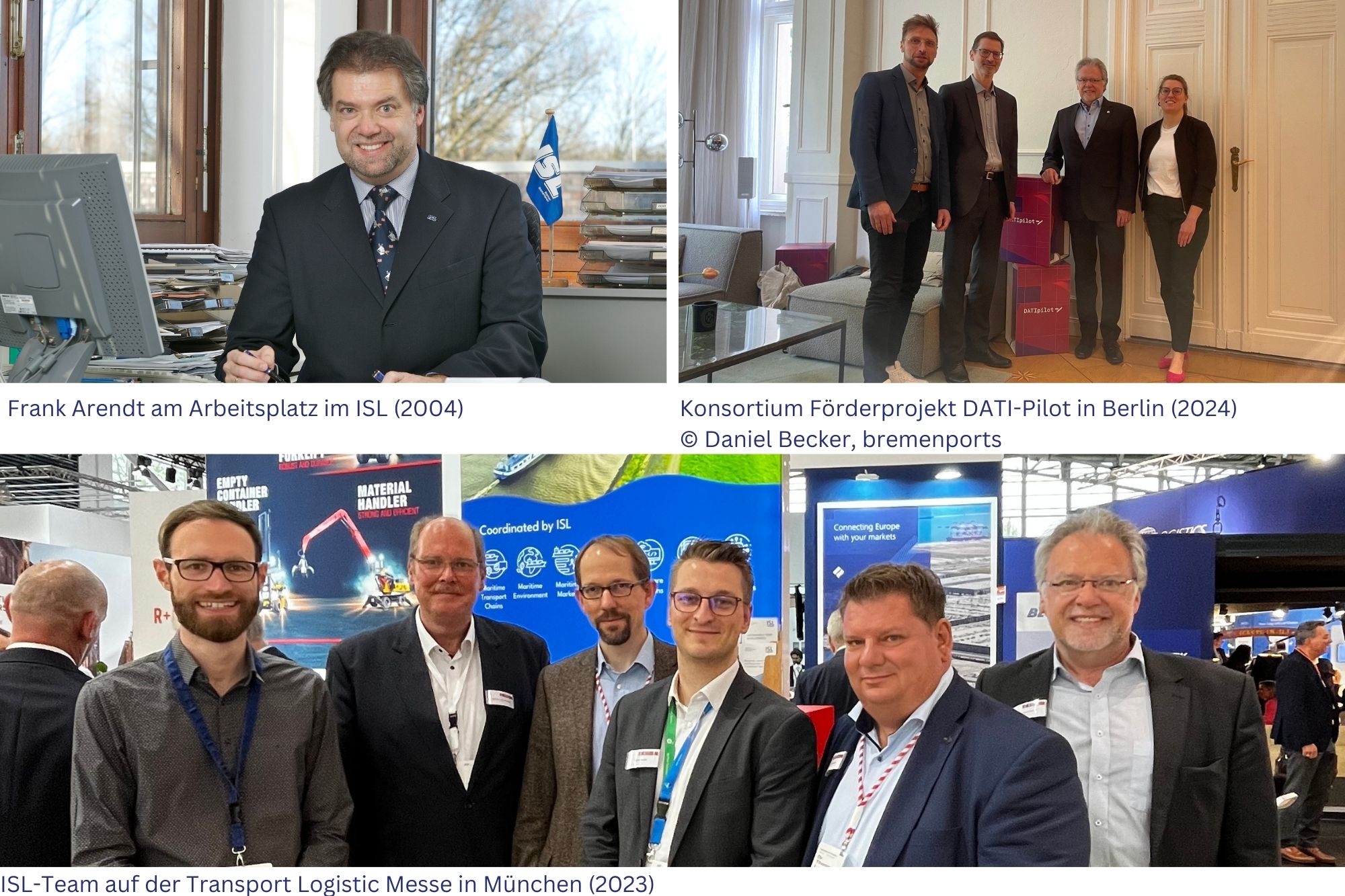Farewell after almost 40 years at ISL: Prof Dr Frank Arendt retires
The retirement of Prof Dr Frank Arendt marks the end of an impressive era at ISL. For nearly 40 years, he influenced the institute’s development, first as a research associate and for the past 20 years, as its Scientific Director. His contributions have left a lasting impression, inspiring countless colleagues. Together, we reflect on his impactful and inspiring time at ISL.
How it all began
Frank Arendt, who studied maths at the University of Bremen, remembers well how he found his way to ISL in 1985. 'During my studies, I worked at the university's computer centre from my third semester onwards and enjoyed programming,' he recalls. 'Shortly before my final exams, the head of the computer centre asked if I would be interested in helping to establish a new department at a research institute. Naturally, I jumped at the opportunity.'
What began as a first step soon developed into an impressive career. After completing his doctorate in 2002, Arendt became Scientific Managing Director, specialising in information logistics – a role in which he played a pivotal part in shaping ISL.
Milestones and changes
During his time at ISL, Arendt witnessed numerous changes that not only shaped the work at the institute but also transformed the entire logistics sector. He particularly recalls the technological shift and the introduction of new means of communication: 'The transition from faxes to emails in the late 1980s was a tremendous relief for project work,' he says. Another significant change for him was the shift from physical business trips to virtual meetings: 'It saved time and money, but personal interactions and the experience of new cultures and cities were lost in the process.'
Projects and lasting impressions
Over the years, Frank Arendt has been involved in numerous pioneering projects, but three hold a special place in his heart. 'My first EU project, MARIN-ABC, part of the 2nd R&D Framework Programme, was a real highlight,' he recalls. 'As early as 1988, we were already considering broadband communication between ships and the shore, working alongside companies and researchers in Bremen and across Europe – it was revolutionary at the time.'
Another formative project was ECSIT, which analysed the effects of the so-called '100% scanning law' on the ports of Bremen. From July 2012, this law was to mandate that no container could be exported to the USA unless it had been scanned and checked for radioactivity at the port of departure. 'The project demonstrated how difficult it can be to balance political directives with practical business implementation,' says Arendt. Although the law was ultimately not enforced, it was still fascinating to explore the potential consequences and understand the challenges that would have arisen if it had been implemented.
Arendt also highlights the EU project INTEGRITY, in which ISL acted as coordinator and developed concepts for supply chain visibility for container shipments from China to the EU. 'The combination of logistical and security aspects was particularly interesting, with customs authorities from the UK and the Netherlands, as well as partners from China, actively involved in the project.'
Looking to the future - and a little melancholy
When asked what he will miss most, Arendt answers without hesitation: 'The creative exchange and development of new project ideas within the management team, alongside the scientists at ISL and potential project partners.' However, he is looking forward to his future with anticipation: he will finally have time to pursue some personal projects that have been on his to-do list for quite some time. That said, Arendt won’t be saying a complete goodbye to ISL: 'Fortunately, I will remain involved with the institute on a smaller scale in the Smartport Transfer (SPorT) project.'
An outlook on the maritime transport industry and ISL
Arendt reflects on the developments in the logistics industry and ISL's role in recent decades: 'The challenges have become more complex and interconnected, isolated considerations of economic, ecological, technical, and social aspects rarely suffice. To name just a few: the shortage of young talent, global crises, sustainability, heightened environmental requirements, implementation of the energy transition and the use of new fuels, digitalisation and automation, as well as the resilience of individual players and the logistics system as a whole, are all highly relevant and continue to grow. ISL is active in all of these fields and is therefore ideally positioned for the future.'


The ISL thanks you sincerely!
As we bid farewell, we can only express our heartfelt thanks for Frank Arendt's nearly 40 years of commitment, expertise, and passion dedicated to ISL. We wish him all the best for his retirement and look forward to seeing what the future holds.

